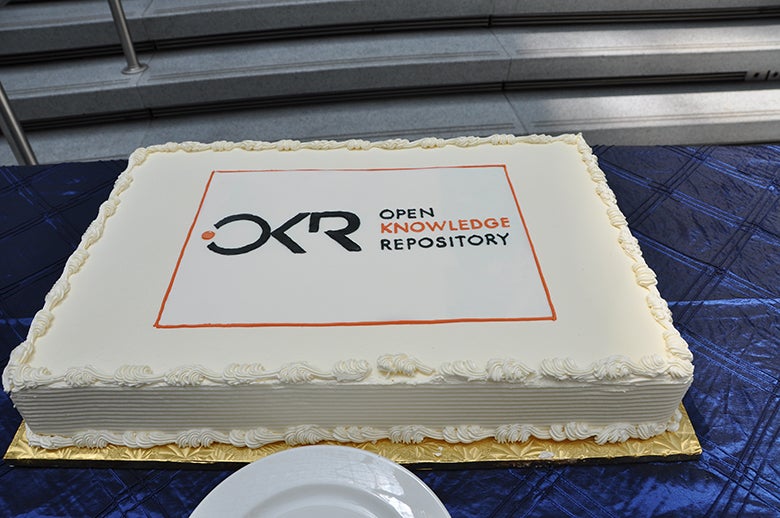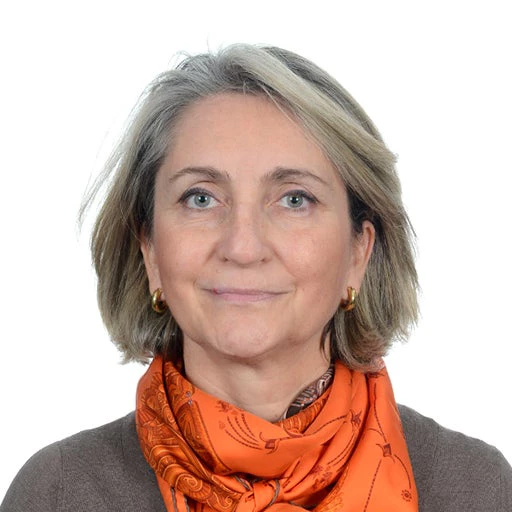
This blog post is a part of the International Open Access Week blog series.
Five years ago, the World Bank Open Knowledge Repository (OKR) was launched, making the most recent publications and research easily discoverable and freely available to the general public. Stuart Tucker, the OKR’s Curator, was there from the very beginning. He shares his thoughts and experiences in today’s blog. We also invite you to join us online for our International Open Access Week panel discussion today from 2:00-3:30pm ET at live.worldbank.org.

When it was first suggested that the World Bank should have an Open Access “repository,” I joined a small team charged with designing and building it. As I attended my first Open Repository conference, I witnessed the blossoming field of activity within the Open Access community.
 We were on a fast-track to complete the repository before the Spring Meetings of 2012—when the Open Access Policy was to be announced. Software was not the only issue we had to tackle quickly. The other main issue was content and how to prepare it in time. To keep the task manageable, the focus was tight: top-level research that had gone through proven review processes. We started with formal publications from the Office of the Publisher, World Banks journals, externally-published journal articles by Bank authors, Policy Research Working Papers, and Economic and Sector Work (ESWs). Unfortunately, we discovered each of these document types had a different origin—and differing metadata quality. Being in the Office of the Publisher, our team decided that high cataloguing and curation standards had to be applied so that the site could autogenerate acceptable citations for users. Alas, the short deadline also meant strong-arming extra people into helping us clean up the metadata for around 3000 items.
We were on a fast-track to complete the repository before the Spring Meetings of 2012—when the Open Access Policy was to be announced. Software was not the only issue we had to tackle quickly. The other main issue was content and how to prepare it in time. To keep the task manageable, the focus was tight: top-level research that had gone through proven review processes. We started with formal publications from the Office of the Publisher, World Banks journals, externally-published journal articles by Bank authors, Policy Research Working Papers, and Economic and Sector Work (ESWs). Unfortunately, we discovered each of these document types had a different origin—and differing metadata quality. Being in the Office of the Publisher, our team decided that high cataloguing and curation standards had to be applied so that the site could autogenerate acceptable citations for users. Alas, the short deadline also meant strong-arming extra people into helping us clean up the metadata for around 3000 items.
The initial launch and reception of the OKR was very gratifying. With robust social media and marketing campaigns, and organic search, we achieved 1 million downloads in the first year. Even so, we knew we had to make improvements to the platform to keep the momentum going. While the team continued to look for software improvements, we also committed to significant content expansion. We added Author-Accepted Manuscripts after negotiating agreements with major journal publishers to reduce the embargo periods for inclusion in the OKR.
We also expanded our harvest procedure and created a content committee to rule on what types of publications would be included to the OKR. Thereafter the pace of adding new content became regular. We have since customized the OKR to add new functionality and have integrated Altmetric into the site so users (and we) can see online and social media activity for new titles. We just launched a new multilingual interface in Spanish and French, and will soon have 2000 items in those languages, bringing the latest total to more than 26,000 items.
With accelerating downloads over the past five years, we breached the 15 million mark in September. This demonstrates that an OAI-PMH-compliant repository with good ties to Google Scholar makes content discoverable around the world. We are delighted the majority of downloads (56%) continue to take place in low- and middle-income countries – the focus of the World Bank’s work and mission. And feedback from users remains positive:
“It has helped me with my academic studies. I'm a postgraduate student studying Development Finance and I tend to cite WBG reports in my assignments because of how relevant and precise the data is. I also appreciate how the WBG carries out extensive research in the different countries within which it operates. You will be guaranteed some sort of annual country-specific report. I leaned heavily on OKR to obtain insights about my own country, Zambia, for example. Other sources of information were either limited or just did not exist at all.” - (Anonymous)
“Always, whenever I needed and searched the WB, for research work of my own or as per requests from our library members, found relevant information sources and it was always best of luck that I got the right information, at the right time, for the right user, without any cost...”- Shahar Bano Faizi, Library Manager, The Urban Unit Learning Resource Center, Lahore, Pakistan
Another big lesson is that social media and promotion matters! When the President of Ecuador tweeted and posted on Facebook about his country’s status for an indicator in one of our books in 2016, the downloads skyrocketed, making us double-check that a bot attack wasn’t in progress. Happily, they were legit! Now no major World Bank publication is released without the OKR links in its media campaign. The “repository,” despite its stodgy name, is the “in” place to be!


Join the Conversation